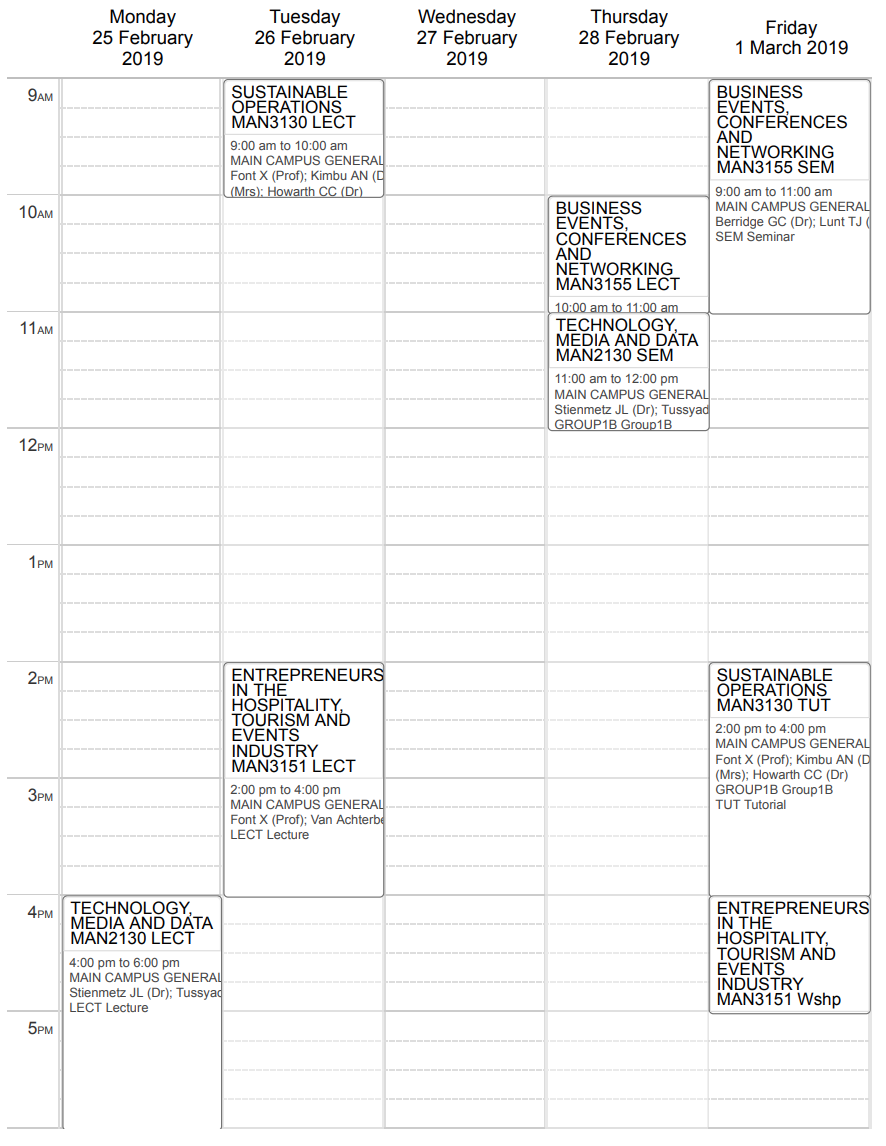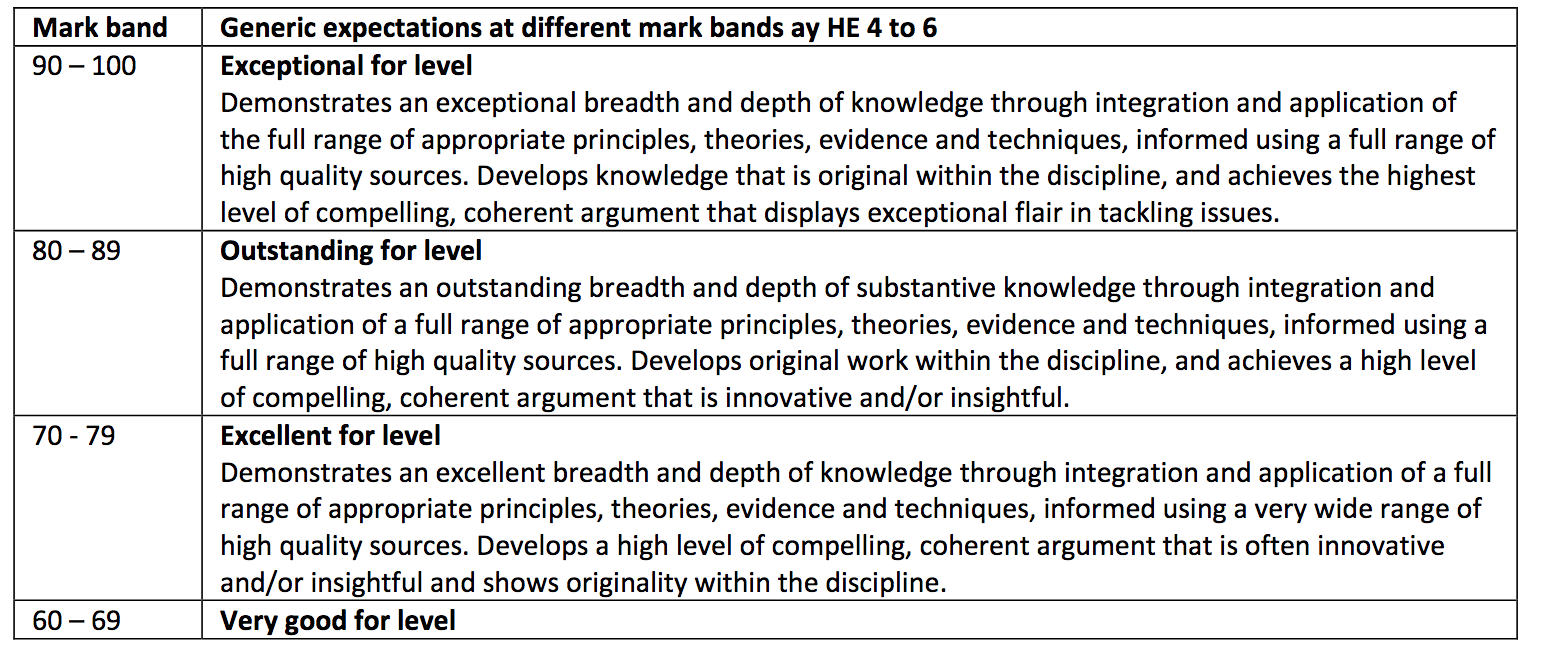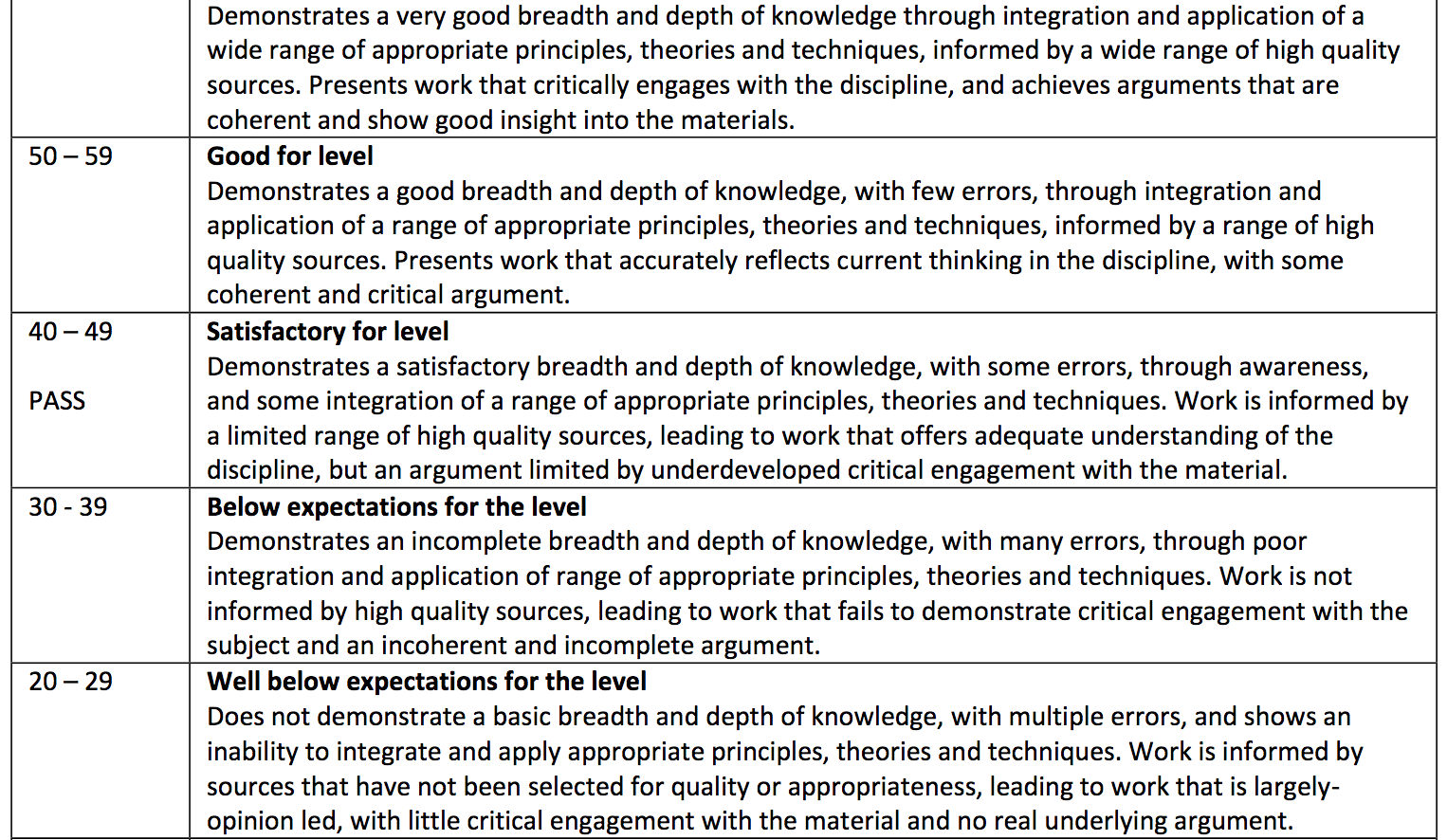
We are finishing our fourth week of classes, and the differences between “college” life in the US and “uni” life in the UK are becoming more apparent. If you are thinking about studying abroad, here are a few things that I have noticed, given I can only compare it to my same degree and home university (Event Management, University of Central Florida).
Scheduling
In the US, I have the complete ability to choose my own schedule. I can see an advisor for assistance if I choose, but I am given the tools to plan out my classes, days, and times as I wish (given the list of what is available). At the University of Surrey, after you submit which “modules” (classes) you’d like to take, they arrange your schedule for you.
At Surrey, there is usually only one lecture/workshop per each module, and everyone attends at the same time. Later in the day or week however, are seminars/tutorials where there are (usually) two or more times available to attend. These times are scheduled for you, but so far all my lecturers have made the note that they just want you to come to a seminar/tutorial, whichever time is best for you to attend. It is also common for there to be a “module leader” who is in charge of the course, but have a group of a few other lecturers who are also responsible for some of the lecturing and grading in the end.

Assessments and Projects
At my home institution, for each class there are usually weekly quizzes, maybe some homework, or a discussion post to do each week. Not to mention a midterm, final exam, and usually a final project. This turns us into “busy” students, but there is less weight on each piece in regards to grading, because there are so many elements.
In the UK, your final grade will usually be based on about two final assignments or assessments. Three out of my four classes are relying on two assignments, while one is focused on a project and a final exam. This format is nice in that there is not so much weekly pressure on schoolwork that is to be turned in and graded. This is not ideal though considering that the entire weight of you grade is based upon so little, and there is no way to improve if you do poorly.
If this is something that you are worried about once you arrive, talk with your professors, and they will really try to help you do your best on these finals. They are here for your best interest and want to see you succeed, and because you are on exchange as well, they are very understanding of the situation.
Grading
The grading scale is much different in the UK, and it can be shocking and difficult to understand at first. At home, the top grade of an “A+” is usually a 93% and above, an “A-”being from a 90-93%. This is what everyone is usually aiming for. In the UK, anything above a 70% pretty much seems like a miracle. On the opposite end though, a 40% in the UK is passing, where at home you need above a 70% usually to be considered passing.



Student-Teacher Relationships
The student-teacher relationships at the University of Surrey are very close knit, and much more informal than in the US. In the UK, if the professor introduces themselves with their first name, which they usually do, that is what you are expected to call them! This was a shock to me, especially in hospitality and business where everything seems to be formal all of the time.
This close-knit informality though has really helped me adjust to school-life here though. I find it much easier to approach my professors, ask questions, and engage in class than I do back home.
Final Thoughts
At first the differences in studies can be a little overwhelming, but in the end there is a network of students, teachers, and resources available to help you succeed. Something I have found helpful is to connect with the other exchange students in my course, and we work through these obstacles together—it is nice to know that you are not alone in this. It is refreshing to learn from a different perspective, which is truly the goal of a study abroad program, and I would highly recommend doing so at Surrey.
